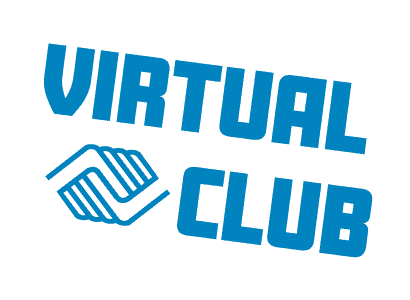Do you know any children who have developmental disabilities? If you answered “no,” you may be surprised to learn that 1 in 6 children in the United States has a developmental disability.
March is Developmental Disabilities Awareness Month, so it’s the perfect time to focus on how we can be more inclusive to make sure all kids can work and play together!
A developmental disability is any condition that impairs areas of a child’s development, including physical, learning, language, and behavior development. Some examples of developmental disabilities are autism spectrum disorder (ASD), attention deficit hyperactivity disorder (ADHD), cerebral palsy, and Down syndrome.
Even if your children don’t have any developmental disabilities, they will likely have classmates who do. Kids have implicit biases the same way adults do, and many people are ableist without even realizing it, meaning they have unexamined biases against people with disabilities.
It’s important to have open discussions about disabilities so we can understand different perspectives, promote inclusivity, and create a more accessible and supportive society.
Here are 5 tips to help you talk about developmental disabilities with your children:
Use clear language and respectful terminology

If you want to talk about developmental disabilities, it’s important to know what words to use. Many adults say phrases like “special needs” or “learning difference” as a way to be polite, but using euphemisms like those can send the message that talking about disabilities is taboo.
There’s also a stigma around terms like “special needs” or “special education” because kids have been taught that being in “special education” is a bad thing. For many people, using “special” in this way feels condescending and offensive. It’s okay to simply say “disability” or “disabled” if that’s what you’re talking about.
Many disability rights activists now advocate for “person-first language,” which involves referring to a person without centering their identity around their disability. For example, you might want to say “a student with disabilities,” rather than “a disabled student.” However, not everyone likes to be referred to this way, so you should ask the person in question what they prefer.
Let kids know it's okay to notice

Kids are naturally curious, and they notice when someone is different from them. Kids are often better at approaching people with disabilities than adults are because they have fewer inhibitions.
Many adults tend to try to stop their kids from asking questions because they worry about appearing rude or bothering people, but by doing this, they end up avoiding the person with disabilities altogether and not learning anything about them.
Many people with disabilities (and parents of children with disabilities) would prefer to be asked directly, rather than avoided. It’s okay if kids notice that someone has a disability or if they’re curious about why someone is acting a particular way.
Just make sure to teach your kids how to ask questions politely and respect people’s boundaries. If someone doesn’t want to answer questions about their disability, that’s okay, too.
Teach empathy and kindness

Children with disabilities are more likely to be victims of bullying than children without disabilities. Prevent bullying by emphasizing the importance of acceptance, kindness, and inclusion. When adults make these values clear, kids learn the difference between good and bad behaviors. Also, children learn from what they see, not what they are told to do, so teach them to be kind by showing kindness yourself.
Emphasize that children with disabilities have feelings just like your children do. No one deserves to be left out or have their feelings hurt. If your kids think someone with developmental disabilities is “weird” or that there’s something “wrong” with them, explain that some kids have trouble doing certain things, like talking or reading, and that’s okay.
Every person is unique and has things they’re good at and bad at, and our differences make the world a more interesting place.
Talk about similarities

Even though we’re all different, we’re all human, which means we all have thoughts and feelings. Children with disabilities want to have friends and feel included just like their classmates.
If your kids have classmates with disabilities, they can find out if there’s anything they have in common, like favorite movies or subjects they enjoy in school.
Let your kids know that having a disability is simply one characteristic a person can have, no different from any other characteristic. Having a disability does not define a person, just like your children aren’t defined by their hair color, how good they are at math, or any other singular characteristic of theirs.
Learn more and share what you know

Watching videos or reading about developmental disabilities with your children is a great way to help them better understand the topic and answer any other questions they might have.
Afterward, you can have a discussion with your kids to help them apply what they learned to their relationships with their classmates.
Another way to help your children understand developmental disabilities is for them to see what people with developmental disabilities are capable of. Maybe you know someone with a developmental disability you can talk to, but if you don’t, you can also try telling your children about famous people they already know and look up to. For example:
- Daniel Radcliffe (actor who played Harry Potter) has dyspraxia, a disorder that affects coordination and fine motor skills.
- Keira Knightley (actress in The Pirates of the Caribbean and Pride & Prejudice) has dyslexia, a learning disorder that affects reading ability.
- Michael Phelps (competitive swimmer and Olympic gold medalist) has ADHD, a developmental disability that affects focus and impulse control.
- Greta Thunberg (climate change activist) has autism spectrum disorder, a developmental disability that can cause challenges with communicating and socializing.
These are just a few examples to demonstrate that having a developmental disability does not stop a person from becoming successful!

We need to be able to have conversations about disabilities if we want to create a world where everyone feels included and welcome.
If and when your kids have classmates with developmental disabilities, they may have questions about it or wonder how they should interact with those classmates. Having an open discussion about this topic can help your children become more empathetic and accepting, creating a better, more inclusive world for everyone!









